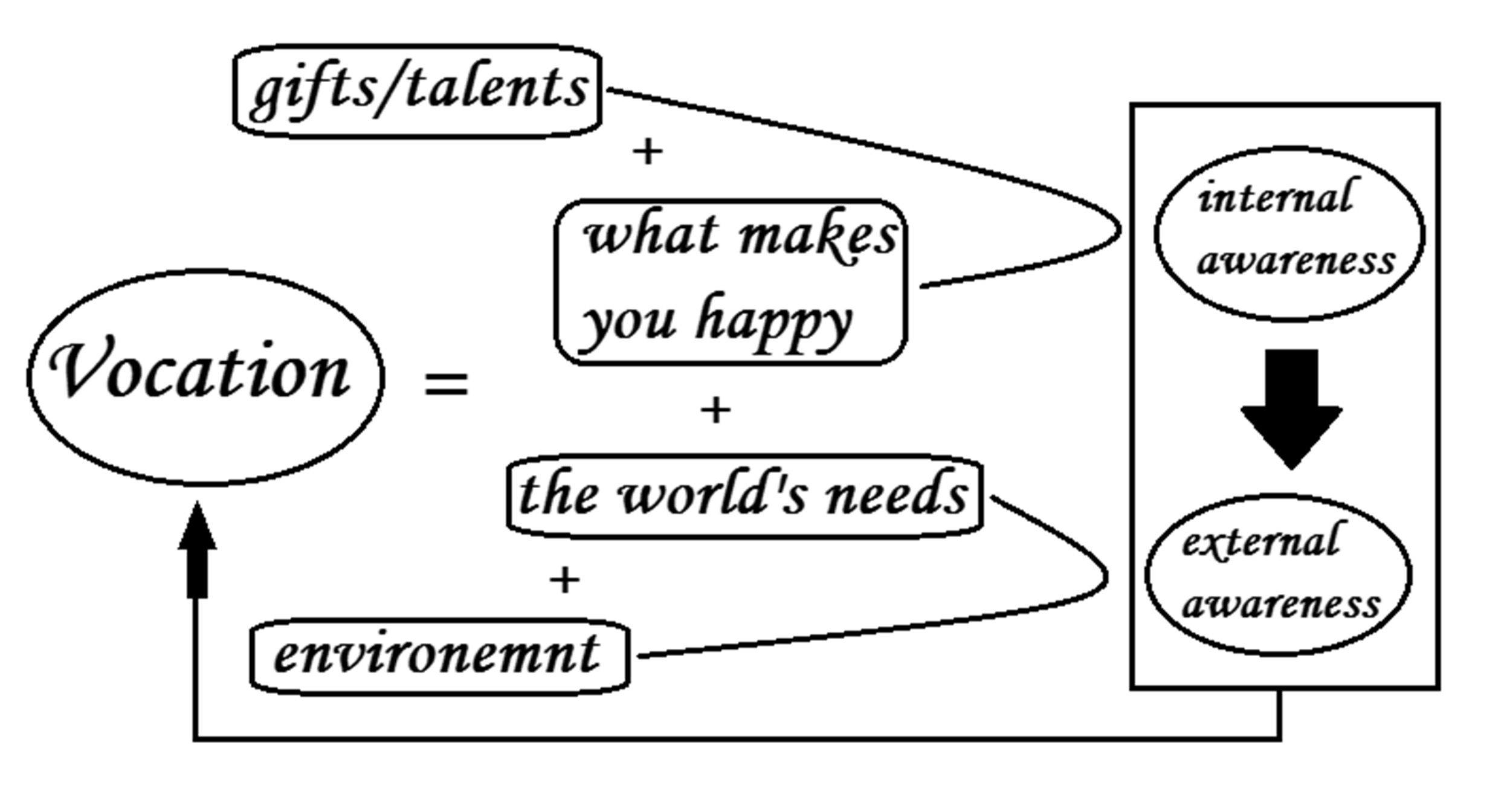 Consider these two imaginary Gusties:
Consider these two imaginary Gusties:
Abby is a religion major. She loves her World’s Religions class and loves inter-religious discussions. She doesn’t know what kind of job she will have after college, but she’s okay with that. She is content knowing that her future job is not dictating what she will major in.
Joe is going pre-med. So far he has gotten all A’s even though those biology and chemistry classes are no cake walk. He’s happy with his grades but not necessarily the content of the classes. What really makes him happy is basketball. He coached basketball over the summer and found he really enjoyed it. Though, he figures being a doctor would be as good of a job as it gets, especially since his Dad is a doctor.
Joe asks himself “what should I do with my life?” Abby on the other hand asks herself “Who am I?”
Last week I suggested an approach such as Abby’s is not only a new approach, it’s the right approach. Sure it may seem kind of stupid for Joe to give up going pre-med so he can pursue coaching, but what if coaching is what he was been born to do?
What if Joe goes pre-med and gets all the way to medical school just to realize being a doctor is not what he is “called” to do?
The theme of my last article was to focus on who you are as a person, and to then pick your major accordingly. The main reason why is vocation.
“We often think about vocation as the thing we are supposed to do because that thing will make us the most happy. But sometimes we fail to realize what will make us the happiest usually has to do with what we can offer to others.”
We’ve all probably heard of the term vocation before, so what is it? We usually think of it in terms of something we are born to do, our “calling.” This is a pretty simple idea of vocation, but nevertheless it’s fairly accurate. As we continue this discussion we will begin to see true vocation as having a more comprehensive meaning, which is initially expressed by the famous theologian and author Frederick Buechner.
Vocation is “The place where your deep gladness meets the world’s deep need,” according to Buechner.
We often think about vocation as the thing we are supposed to do because that thing will make us the most happy. But sometimes we fail to realize what will make us the happiest usually has to do with what we can offer to others.
In the case of our pre-med Joe, he might be happy when playing basketball, but he might experience a “deeper gladness” when he shares what he knows about basketball with others from coaching.
Author and activist Dr. Parker Palmer expands upon Buechner’s definition of vocation in his insightful book “Let Your Life Speak.” Palmer offers us a formula or equation for vocation. There are four factors that when added together equal true vocation: what makes us happy, our gifts and talents, the world’s needs, and our environment (Palmer 16-17). So vocation is a combination of both internal and external awareness so to speak, the former arguably being more difficult to realize than the latter. Internal awareness may in fact be the prerequisite for the realization of external awareness.
How do you become internally aware of who you are? How do you know what your gifts and talents are? How do you know what will make you happy?
Hidden underneath Palmer’s formula for vocation is the notion of self. Knowing your vocation means knowing what you have been “called” to do. It means being aware of the unique qualities that only you were born with, and that you’ve possessed your entire life. This concept of “true self” is debatable, especially for philosophical and religious doctrines such as Buddhism which deny the existence of such self. Nonetheless the possession of a true self, an inner authentic self, is something that makes logical sense if you think about it. It does at least for me.
If we’ve had this inner self ever since we were born, what does that mean in regards to vocation? Well, let’s start with the literal translation of “vocation.” The Latin root of translates to “voice,” (Palmer 4). It is more than appropriate to consider our true self as our “voice.” Shouldn’t it be our job to listen to that voice?
This is how you begin to understand true vocation, by listening. “Before you tell your life what you intend to do with it, listen for what it intends to do with you,” says Palmer. This is why I recommend you ask “who am I,” so that you can begin listening to your inner voice that gets tuned out for most of our life, especially when we are young.
When you focus on “who am I,” you shift your attention to discovering or rediscovering what you like and what you dislike. You become aware of what your inherent gifts and talents are. And most importantly, you take your first step onto a life-path filled with purpose, a path that leads you to vocation.
When we focus on what our future job should be, we actually close the door on true vocation. In order to leave the door open you have to ask yourself “who am I?” But in order to walk through that door, you have to be willing to accept who you are, to listen to your inner self, and to then be who you know you are.
Why does focusing on our future job “close the door” on true vocation? Stay tuned for part two to find out the answer…
-Colin Reike
